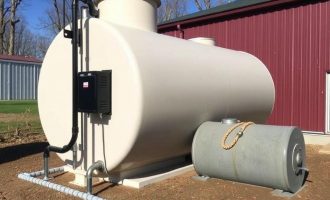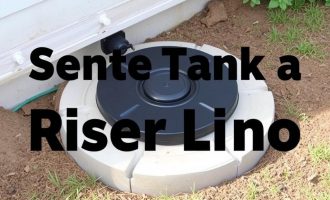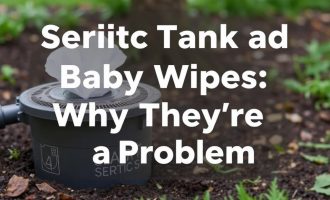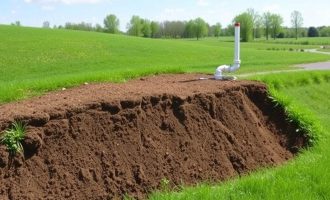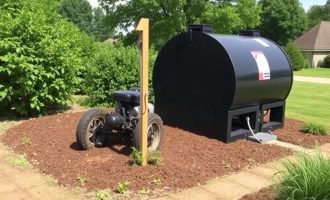Septic systems play an essential role in managing household wastewater safely and efficiently, especially in areas not connected to a municipal sewer line. They help break down waste, treat water, and protect the environment. However, many homeowners are unaware of what items and substances are harmful when flushed down their drains. Flushing the wrong things into a septic system can lead to major problems, including costly repairs, system failure, and environmental contamination. Understanding what not to flush into a septic system is key to maintaining its health and longevity.
In this article, we’ll explore the common mistakes people make when it comes to flushing, what exactly should never enter your septic tank, and why. From household cleaning products and medicines to everyday wipes and grease, you’ll get a clear picture of what can damage your system and how to keep it running smoothly. We’ve organized the information for you with helpful tables, lists, and clear explanations to make it easy to remember. Let’s dive in!
- What Is a Septic System and How Does It Work?
- Common Items That Should Never Be Flushed
- The Hidden Dangers of “Flushable” Items
- Why Grease and Oils Should Never be Flushed
- Household Chemicals and Their Impact on Septic Systems
- Medications and Antibiotics: A Quiet Threat to Your Septic Tank
- Food Waste and Its Effect on Septic Systems
- Non-Biodegradable Items to Watch Out For
- Quick Checklist: What NOT to Flush into a Septic System
- Tips for Maintaining a Healthy Septic System
- When to Call a Professional
- Summary Table: Common Problems from Flushing the Wrong Items
- Educational Outreach: Teaching Everyone in Your Household
- Eco-Friendly Alternatives for Difficult Disposal Items
- Final Thoughts on Protecting Your Septic System
- Conclusion
What Is a Septic System and How Does It Work?
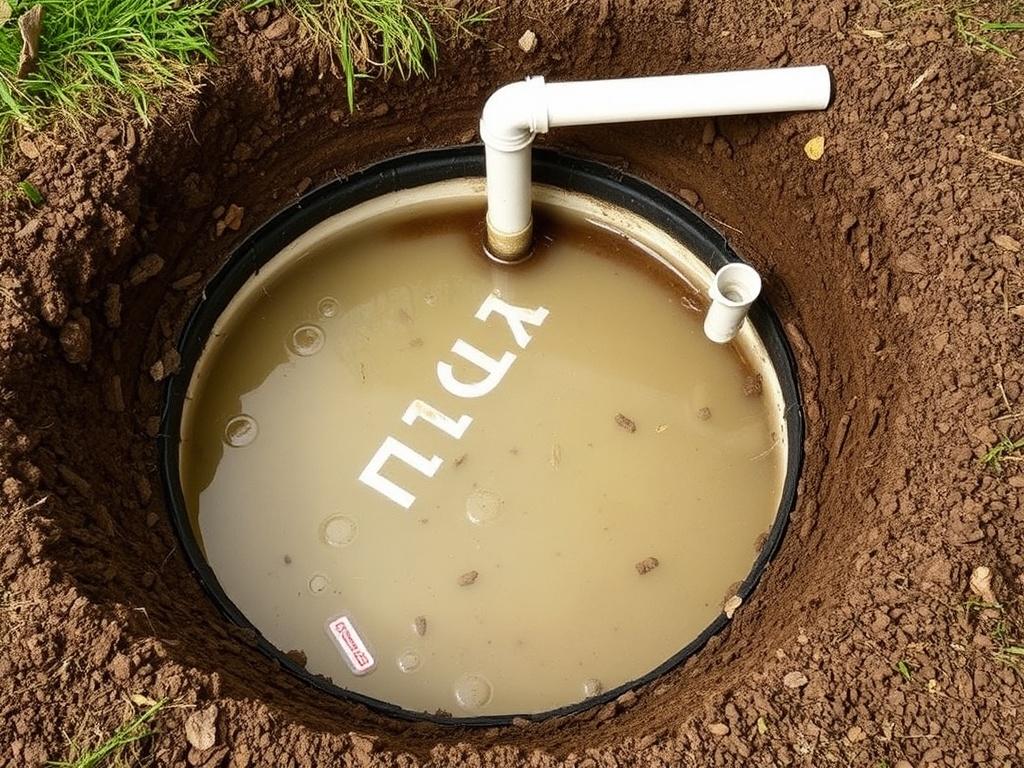
Before we talk about what not to flush, it’s important to understand how a septic system operates. Essentially, a septic system is an underground wastewater treatment structure, usually made up of a septic tank and a drain field. When water and waste leave your home, they go into the septic tank first, where solids settle to the bottom, forming sludge, and oils or lighter materials float to the top, creating scum.
Bacteria within the tank naturally break down some of the solids to reduce volume. The remaining liquid then flows into the drain field, where it percolates through soil that filters out harmful bacteria and nutrients before the water reaches groundwater. The system depends heavily on natural biological processes and physical filtration to keep your home and environment safe.
Damaging this delicate balance by flushing inappropriate items can cause sludge buildup, clog pipes, overload the system, or poison the very bacteria needed for waste breakdown. Knowing what not to flush is the first step in protecting your investment and preventing major headaches down the line.
Common Items That Should Never Be Flushed
We hear a lot about “flushable wipes” and other products designed to go down the toilet, but the truth is many of these items do not break down properly in a septic system. Here’s a handy table listing common items you should avoid flushing, along with why they cause problems:
| Item | Why Not to Flush |
|---|---|
| Baby wipes, disinfecting wipes, paper towels | Resistant to breakdown, cause clogs and build up in the tank and pipes |
| Feminine hygiene products (tampons, pads) | Do not decompose, can clog system and cause backups |
| Cigarette butts | Not biodegradable, contain chemicals harmful to bacteria |
| Grease, cooking oil, and fats | Solidify in pipes and tank, clogging and slowing drainage |
| Medications and antibiotics | Kill beneficial bacteria needed for waste breakdown |
| Dental floss | Non-biodegradable, can entangle and block pipes |
| Cat litter | Contains clay and other toxins, clumps and damages system |
| Condoms | Non-biodegradable, clog pipes and tanks |
| Chemicals and harsh cleaning agents | Kill septic bacteria and interfere with treatment process |
| Food scraps | Do not break down well, add excess solids and cause clogs |
The Hidden Dangers of “Flushable” Items
One of the biggest misconceptions is the idea that if something is labeled “flushable,” it is safe for your septic system. Unfortunately, many “flushable wipes” and other products are only flushable in municipal sewer systems designed to handle larger loads and more aggressive treatment. In septic tanks, these items simply sink, accumulate, and cause major blockages or mechanical failures.
These wipes can bind with grease and other waste, creating large masses that must be removed by a professional pump. Flushing these items repeatedly can drastically reduce the lifespan of your septic system and lead to very expensive repairs.
To avoid this, it’s best to stick with toilet paper that is septic-safe and dispose of wipes and other non-biodegradable items in the trash. Keeping harmful materials out of your system will save you both money and frustration.
Why Grease and Oils Should Never be Flushed
Grease, fats, and cooking oils are a different kind of nightmare for septic systems. When hot, these substances are liquid and may seem harmless, but as they cool in your pipes or in the tank, they solidify and form blockages sometimes called “fatbergs.” These solid masses restrict water flow and can cause backups into your home.
Septic tanks are not designed to break down grease effectively, so it accumulates as scum on top of the tank and reduces the capacity of the system. When grease enters the drain field, it can cause soil pores to clog, preventing proper filtration and causing wastewater to pool on the surface.
The best way to handle grease is to pour it into a heat-safe container and dispose of it in the trash once solidified or bring it to a local recycling facility if one is available.
Household Chemicals and Their Impact on Septic Systems
Many people unknowingly flush household chemicals like bleach, ammonia, drain cleaners, and even antibacterial soaps down their toilets or sinks. While these products help clean your home, they have a destructive effect on your septic system’s bacterial ecosystem.
The bacteria in your septic tank are critical—they digest solid waste and keep sludge levels manageable. Harsh chemicals can kill these bacteria, effectively “shutting down” the natural treatment process. This leads to a buildup of solids, unpleasant odors, and eventually system failure.
If you must use chemical cleaners, do so sparingly and in ways that avoid sending them directly into the septic system. Consider using septic-safe cleaning products or natural alternatives like vinegar and baking soda instead.
Medications and Antibiotics: A Quiet Threat to Your Septic Tank
Many people flush expired or leftover medications down the toilet, thinking it’s safe or the easiest way to dispose of them. However, medications—especially antibiotics—have unintended consequences for septic systems.
When medicines enter the septic tank, they can harm the beneficial bacteria needed for digestion of waste. Antibiotics are designed to kill bacteria, which means they can wipe out the very organisms your system relies on.
Apart from affecting your system, flushed medications contaminate the groundwater and cause environmental risks, affecting local ecosystems and potentially even drinking water.
Instead of flushing medications, check with your local pharmacy or community for safe medicine disposal programs that ensure medications are destroyed properly.
Food Waste and Its Effect on Septic Systems
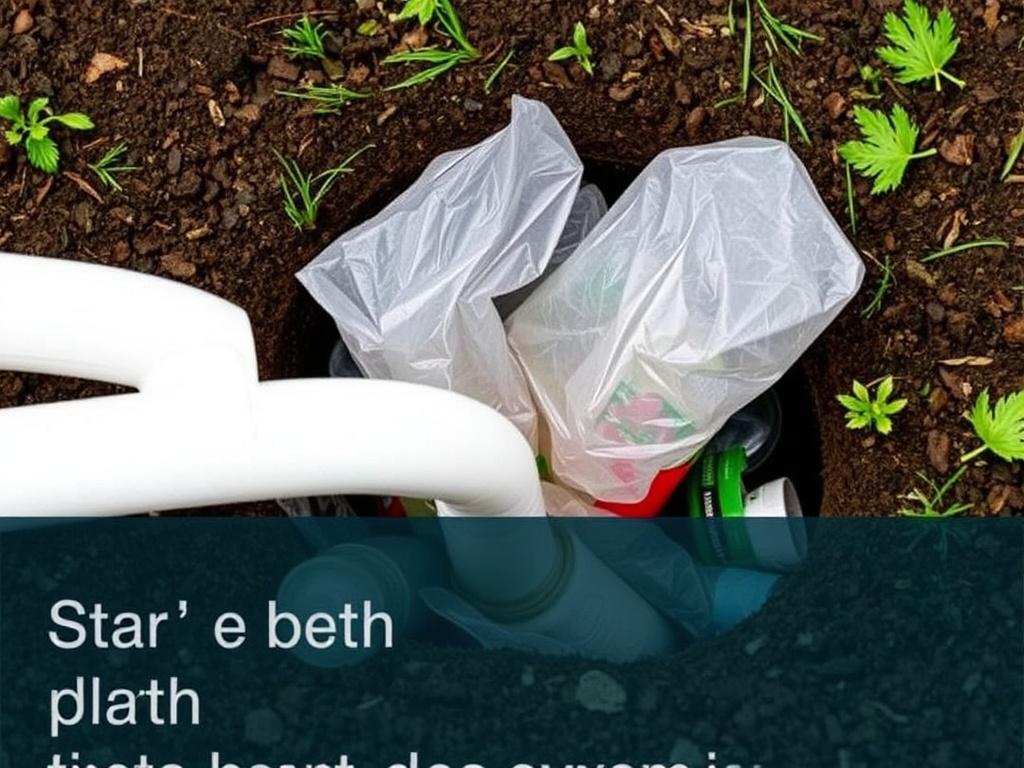
It might seem harmless to flush food scraps down the toilet, but even small amounts of food waste can disrupt your septic system. Food breaks down slowly in septic tanks and increases the amount of solids and organic material that must be processed.
This can lead to faster sludge accumulation and more frequent tank pumping requirements. Some foods, like greasy or starchy items, are especially problematic as they contribute to clogs and create excess scum layers.
For best septic system health, scrap food into the compost bin or trash—not the toilet or kitchen sink.
Non-Biodegradable Items to Watch Out For
A category worth emphasizing includes all non-biodegradable products such as cotton balls, dental floss, and condoms. These items do not dissolve or break down in the septic environment and tend to accumulate, creating blockages in pipes and tanks.
Sometimes these objects can even damage mechanical components like pumps or cause backups into your home’s plumbing fixtures.
Always remember that the only things that should be flushed are human waste and septic-safe toilet paper.
Quick Checklist: What NOT to Flush into a Septic System
Here’s an easy-to-follow list to keep near your toilet or septic tank access point:
- Baby wipes, disinfecting wipes, and paper towels
- Feminine hygiene products (tampons, pads)
- Cigarette butts
- Grease, cooking oil, and fats
- Medications and antibiotics
- Dental floss
- Cat litter
- Condoms
- Household chemicals and harsh cleaners
- Food scraps
Tips for Maintaining a Healthy Septic System
Knowing what not to flush is only one side of the coin. Here are some practical tips to help your septic system thrive:
- Regularly pump your septic tank (every 3-5 years depending on use)
- Use septic-safe, biodegradable toilet paper
- Avoid excessive use of chemical cleaners and antibiotics
- Conserve water to reduce system overload
- Protect your drain field by avoiding heavy traffic and not planting trees close by
- Dispose of non-flushable items in the trash
- Direct gutter and surface water away from your drain field
When to Call a Professional
If you notice signs of septic system trouble—such as slow drains, foul odors, backups, or soggy spots near the tank or drain field—it may be time to contact a septic professional. Early intervention can prevent costly failures.
Professionals can inspect your system, perform pumping, and provide advice tailored to your home’s needs.
Summary Table: Common Problems from Flushing the Wrong Items
| Flushed Item | Resulting Problem |
|---|---|
| Wipes and paper towels | Clogs and blockages in pipes and tank |
| Grease and fats | Fatbergs, scum buildup, drain field clogging |
| Chemicals and antibiotics | Killed bacteria, system failure |
| Feminine products and condoms | Physical blockages |
| Food scraps | Excess solids, faster sludge buildup |
Educational Outreach: Teaching Everyone in Your Household
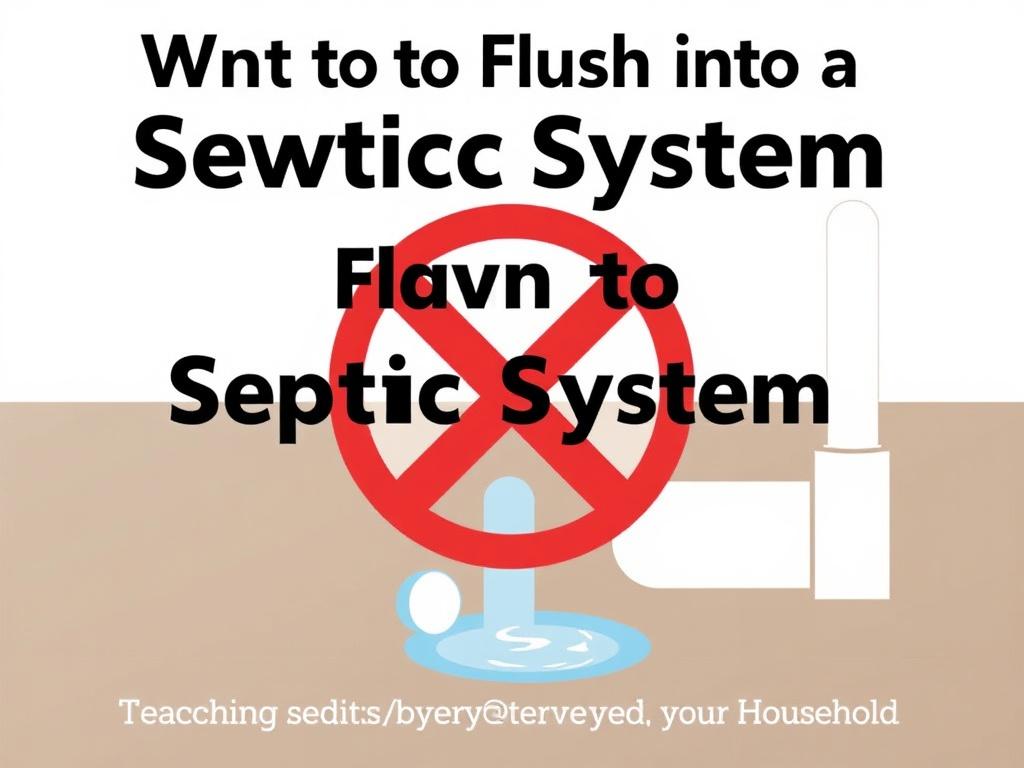
A big part of protecting your septic system is education. Make sure everyone who uses your home understands what should and shouldn’t be flushed. Consider placing reminders near bathrooms and sinks. This simple step can greatly reduce accidental flushing of harmful items.
Eco-Friendly Alternatives for Difficult Disposal Items
When it comes to disposing of non-flushable waste, here are some eco-friendly alternatives:
- Used cooking oil — recycle at designated centers or solidify and toss in the trash
- Medication — use take-back programs instead of flushing
- Disposable hygiene products — use biodegradable or reusable alternatives where possible
- Cleaning agents — switch to septic-safe or natural products
Using these alternatives not only protects your septic system but also has broader positive environmental effects.
Final Thoughts on Protecting Your Septic System
Caring for your septic system involves more than routine maintenance — it requires thoughtful habits, especially about what you flush. Avoiding items that damage or clog the system extends its life, saves you money, and protects your home and local environment.
If you still have questions or concerns, don’t hesitate to reach out to a septic professional for advice tailored to your specific system and situation. With the right knowledge and care, your septic system can serve you reliably for many years.
Conclusion
In summary, knowing what not to flush into a septic system is crucial for responsible homeownership. Items like wipes, feminine hygiene products, grease, chemicals, medications, and food waste all pose serious risks to the operation and lifespan of your septic tank. By sticking to flushing only human waste and septic-safe toilet paper, avoiding harsh chemicals, properly disposing of leftover medication and grease, and educating everyone in the household, you can keep your septic system healthy and functional. Remember, prevention is always better than costly repairs. Taking these simple yet important steps helps protect your investment and the environment — a win-win for you and your community.
Помогла вам статья?


